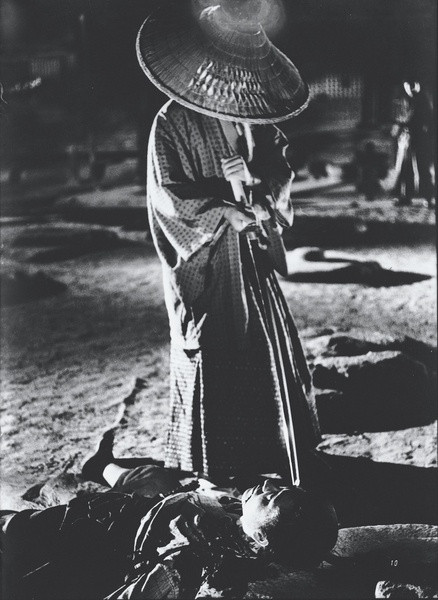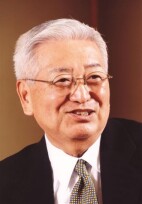
Shochiku Nouvelle Vague 2007 / Ansatsu / Japan 1964
This samurai drama with a touch of the political thriller follows the brief life of Hachiro Kiyokawa, a gifted samurai of many talents who became a wanton mercenary killer. Black-and-white CinemaScope, a score by Tôru Takemitsu, and combat choreography – at least three reasons why this film can never be forgotten.


Masahiro Shinoda’s first historical film follows the short but remarkable life of Hachiro Kiyokawa, a gifted samurai of many talents who decided to take advantage of a time of change and instability in the 1860s to fulfil his own ambition to take power. The samurai tacking between two political fractions – the Emperor and the Tokugawa shogunate – symbolises his own moral decay: progressing from a virtuous and loyal warrior to a merciless, corruptible killer of the belief that life can be bought and sold. Playing thus with fire, the charismatic Kiyokawa inevitably meets his demise, but his violent death is only the tip of the iceberg: the social disintegration infects even the most virtuous stratum – the samurai. This samurai drama with a touch of the political thriller is, in a way, the most nihilistic milestone typical of the Japanese genre. The splendid visuality of the black-and-white CinemaScope, the enigmatic music of Tôru Takemitsu, and the combat choreography underscore this film as one that is simply not to be missed.
103 min / Black & white, 35 mm
Director Masahiro Shinoda
/ Screenplay Nobuo Yamada podle románu / based on a novel by Ryotaro Shiba
/ Dir. of Photography Masao Kosugi
/ Music Tôru Takemitsu
/ Production Shochiku
/ Cast Tetsuro Tamba, Eiji Okada, Eitarô Ozawa, Isao Kimura, Muga Takewaki, Shima Iwashita, Keiji Sada
/ Contact Shochiku Co., Ltd., The Japan Foundation

Masahiro Shinoda (b. 1931, Gifu prefecture) is a director known as the intellectual of the Japanese New Wave. He studied theatre history at university but was forced to seek work early on after the death of his mother in 1953. His experience in the Shochiku studio led to his debut One Way Ticket to Love, 1960. From the outset Shinoda was fascinated by the deeper psychology and aesthetics that his distinct visual style brought to his films. After leaving Shochiku in 1965, in an independent production, he focused on the work of classic dramatist Monzaemon, among others. The films Double Suicide, 1969 and Gonza the Spearman, 1986, for which Shinoda was awarded a special Silver Bear at the Berlin Festival, were based on Monzaemon’s work. The films Silence, 1971 and MacArthur’s Children, 1984, in which the director turned to the consequences of the Second World War for his generation, were both distributed in Czech cinemas.
Shochiku Co., Ltd.
4-1-1 Tsukiji, Togeki Bldg. 12th Floor, Chuo-Ku, 104 8422, Tokyo
Japan
Phone: +81 355 501 623
Fax: +81 355 501 654
E-mail: [email protected]
The Japan Foundation
4-16-3 Yotsuya, Shinjuku-ku, 160-0004, Tokyo
Japan
Phone: +81 355 623 535
Fax: +81 355 623 500
E-mail: [email protected]

Junko Kawaguchi

Masahiro Shinoda
Film Director, Film Director

Marie Suzuki
Institution
First-hand brews throughout the year.
Be among the first to learn about upcoming events and other news. We only send the newsletter when we have something to say.